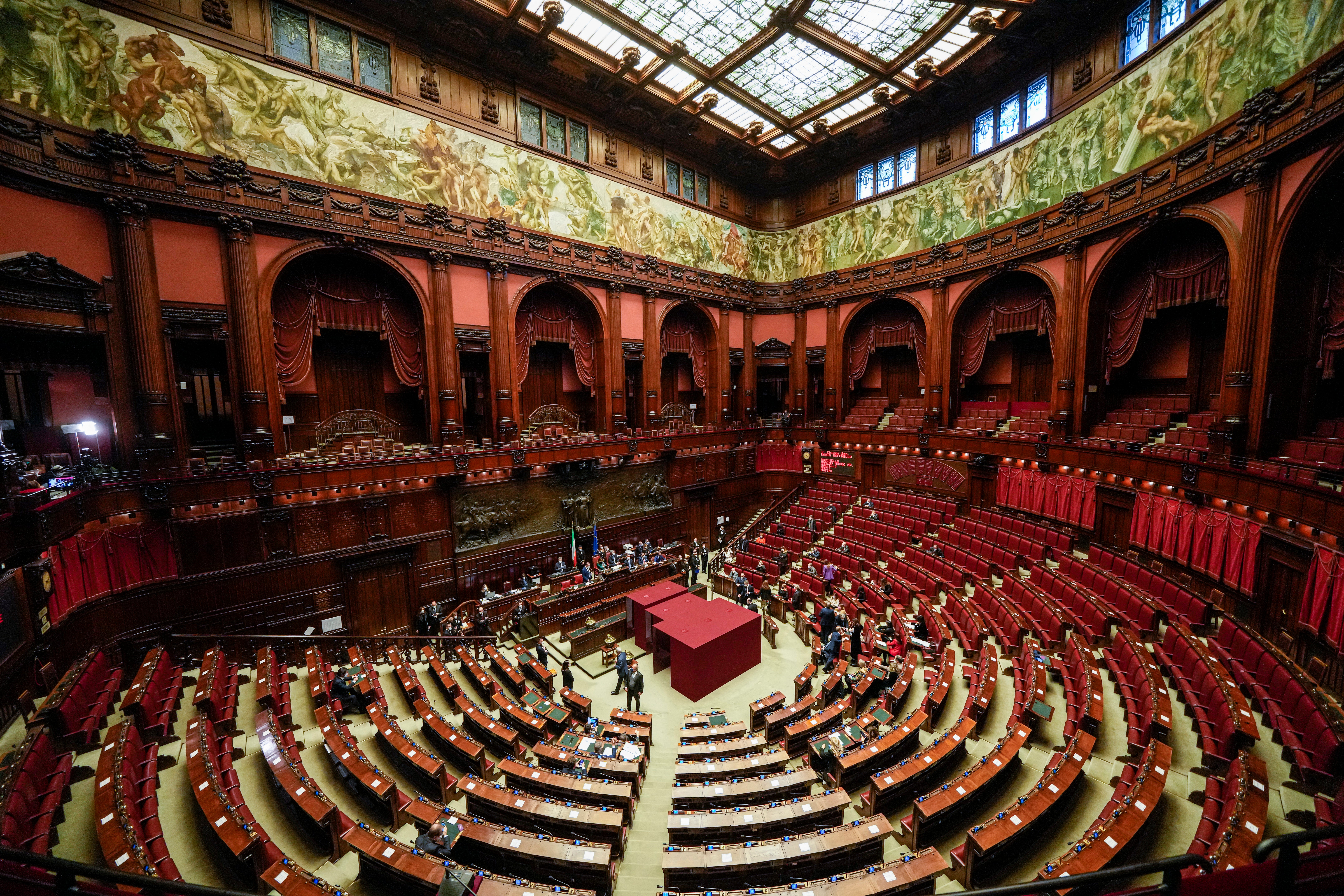Italian party chiefs struggle to nail deal on next president
Leaders across Italy's political spectrum have been struggling to nail down an agreement on who should be the country's next president

Your support helps us to tell the story
From reproductive rights to climate change to Big Tech, The Independent is on the ground when the story is developing. Whether it's investigating the financials of Elon Musk's pro-Trump PAC or producing our latest documentary, 'The A Word', which shines a light on the American women fighting for reproductive rights, we know how important it is to parse out the facts from the messaging.
At such a critical moment in US history, we need reporters on the ground. Your donation allows us to keep sending journalists to speak to both sides of the story.
The Independent is trusted by Americans across the entire political spectrum. And unlike many other quality news outlets, we choose not to lock Americans out of our reporting and analysis with paywalls. We believe quality journalism should be available to everyone, paid for by those who can afford it.
Your support makes all the difference.Leaders across Italy’s political spectrum, under pressure to nail down an agreement on who should be the country’s next president, huddled again Tuesday without immediate success, so the second day of voting by lawmakers in Parliament appeared as doomed as the first.
Through Wednesday, a two-thirds majority is needed to elect a new head of state, a figure tasked with representing national unity. Starting with the fourth round of voting on Thursday, only a simple majority of 505 votes is necessary.
But even that reduced margin could prove elusive. Whether enough support can be found to elect Premier Mario Draghi as president is one of the possibilities being haggled over by party leaders. In the past, some Italian presidential elections needed more than a dozen rounds.
Draghi is heading an Italian pandemic unity government that includes left-wing, right-wing, centrist and populist forces. The former European Central Bank chief, widely respected in Europe, is considered keen to become president, a seven-year term. But party leaders in the unusual unity coalition are nervous about who might replace him as premier if he moves to the Quirinal presidential palace.
Italy's next national election must be held by spring 2023, and there is apprehension by many party leaders that a change at the helm of government now might trigger an early election.
Ahead of the presidential election, former Premier Silvio Berlusconi 85, who at the last-minute relinquished his own ambitions to become head of state, and his ally Matteo Salvini, who heads the right-wing League party, each publicly opposed any change in the premiership now.
But neither the center-right bloc, the center-left bloc or the internally squabbling populist 5-Star Movement, Parliament's largest party, has come up with an alternative candidate other than Draghi.
Italy's presidency is a largely ceremonial office. But whoever holds that office can dissolve Parliament if it is hopelessly deadlocked, triggering an early election, send back legislation deemed in need of changes and tap someone to form a new governing coalition when needed.
Antonio Tajani a leader within Berlusconi's Forza Italia party, expressed optimism some name would emerge to attract sufficient backing.
"There will be a list of names, of men and of women, institutional figures who will have the characteristics to be president of the Republic,'' Tajani told reporters Tuesday between meetings.
In Monday's initial round of voting, the lack of agreement was underlined by an avalanche of blank ballots cast.